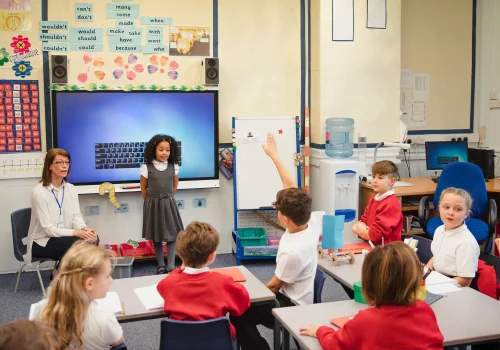The Importance of Internet Safety for Children
In today’s digital world, children are growing up surrounded by technology. From online learning and gaming to social media and streaming platforms, the internet is a central part of their daily lives. While it offers countless opportunities for learning and connection, it also comes with real risks.
That’s why teaching children about internet safety is more important than ever. It’s not just about protecting their personal information—it’s about helping them navigate the digital world with awareness, confidence, and responsibility. Here’s some further information from an independent school in Gloucestershire.
Why Internet Safety Matters
- Protecting Personal Information
Children often don’t understand the long-term consequences of sharing personal details online. Whether it’s their full name, address, school, or even a photo, this information can be misused by strangers or lead to identity theft. Teaching them what to keep private helps reduce those risks.
- Avoiding Online Predators
Unfortunately, the internet is not always a safe space. Online predators often pose as peers to trick children into inappropriate conversations or in-person meetings. When children know the warning signs—like someone asking them to keep secrets or pushing for personal information—they’re better equipped to protect themselves.
- Preventing Cyberbullying
Cyberbullying is a growing concern, especially on social media and messaging platforms. Children can experience or even participate in harmful behaviour online without fully understanding the impact. Talking openly about kindness, empathy, and the importance of speaking up empowers them to stand against online bullying.
- Managing Screen Time and Content
Without limits, kids can easily spend hours online or stumble across content that’s inappropriate or upsetting. Safe internet use includes setting boundaries—both around how much time they spend online and what types of content are okay to view.
- Building Digital Responsibility
The internet is forever. Helping kids understand the permanence of what they post—and how it can affect their future—builds a sense of digital responsibility. It’s essential that children learn to think before they share, comment, or click.
Tips for Parents and Caregivers
- Talk early and often. Have age-appropriate conversations about internet use and safety. Make it a regular topic, not a one-time lecture.
- Set clear rules. Create family guidelines around screen time, device use, and acceptable websites or apps. Stick to them consistently.
- Use parental controls. Many devices and apps allow you to filter content, limit screen time, and monitor activity.
- Know what they’re using. Stay informed about the platforms and games your child engages with. Ask questions and even try them out yourself.
- Encourage open communication. Let your child know they can come to you if something online makes them uncomfortable—without fear of getting in trouble.
The internet isn’t going away—and we don’t want it to. It’s a powerful tool for creativity, education, and connection. But like any tool, children need guidance in how to use it safely.
By prioritising internet safety and keeping communication open, you’re not just protecting your child from harm—you’re helping them become thoughtful, responsible digital citizens.





